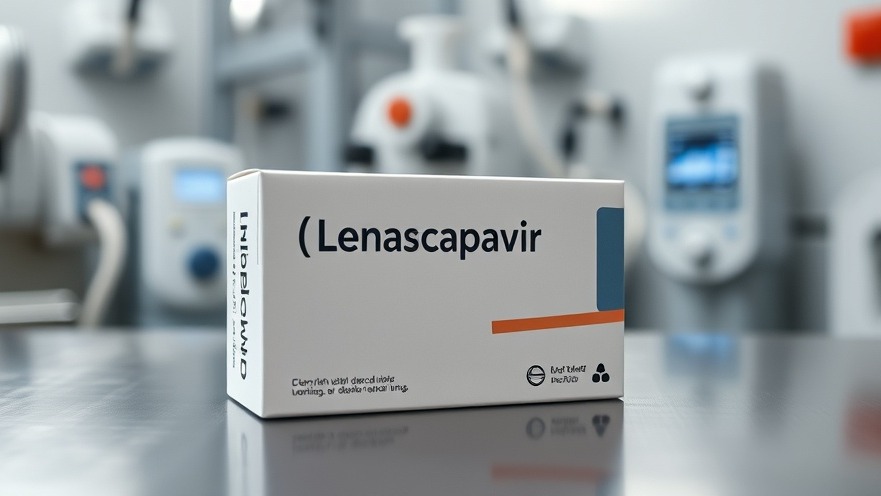
Revolutionizing HIV Prevention: The Impact of Lenacapavir
The recent approval of lenacapavir, branded as Yeztugo, by the U.S. Food and Drug Administration (FDA) signifies a landmark moment in the ongoing fight against HIV. This new drug, administered as a twice-yearly injection, presents a powerful preventive measure against the virus, with studies indicating a staggering 99.9% success rate in keeping participants HIV negative during clinical trials.
Understanding the Significance of This Approval
Gilead Sciences, the company behind lenacapavir, has described this development as a "milestone moment" in HIV prevention. CEO Daniel O'Day emphasized the potential for this drug to revolutionize how individuals manage their risk of HIV. With approximately 31,800 new HIV infections reported in the U.S. in 2022, the need for innovative prevention methods has never been more pressing. Lenacapavir not only offers a new option for those at high risk but also provides a convenient alternative to daily pills, making adherence easier for patients.
Challenges in the Continuation of HIV Research
Despite this promising advancement, experts warn against complacency. Recently, funding for broad HIV vaccine research has faced significant cuts, following the previous administration's claims about the sufficiency of current HIV prevention methods. Dr. Barton Ford Haynes from the Duke Human Vaccine Institute referred to lenacapavir as a fantastic development, yet he stressed the importance of continuing efforts towards developing an effective vaccine. The concerns raised over these funding cuts by researchers underline that while lenacapavir represents a breakthrough, it is not a comprehensive solution.
The Path Ahead for HIV Research and Prevention
Researchers like Dennis Burton at Scripps Research have identified a sense of urgency in the fight against HIV. Although advancements like lenacapavir are critical, the long-awaited vaccine development remains paramount. Recent breakthroughs in clinical trials may provide hope, but cutting funding could set back progress by years. Burton’s assertion highlights a daunting reality: vital HIV research might not simply be paused; it risks regression that may cost us a decade of progress.
A Look at the Broader Context of HIV Prevention
The HIV epidemic, initially recognized in the 1980s, has become a chronic health condition for many, particularly in the United States where disparities still affect marginalized groups disproportionately. The introduction of lenacapavir serves as a reminder of the pharmaceutical innovations that have occurred over the years, yet also sheds light on the systemic challenges that continue to impede comprehensive healthcare access and education.
Community Response and Support
The community's perspective on this new drug could shape the efficacy of its implementation. Public health campaigns will need to address accessibility and stigma surrounding HIV, ensuring that high-risk populations understand and receive the preventive measures available. Engaging with community leaders and organizations dedicated to HIV awareness will play a crucial role in the successful deployment of lenacapavir. As we move forward, it’s essential that conversations about HIV remain inclusive and informative.
The Power of Knowledge: Informing the Public
Continued education on HIV prevention and treatment options is imperative as we navigate this new landscape of healthcare. Public awareness campaigns, funded research initiatives, and access to preventative care must converge to create a robust defense against HIV. With lenacapavir's FDA approval, we now have a powerful tool at our disposal, but it is up to the community, health professionals, and policymakers to ensure it is utilized effectively.
This transformative moment in healthcare calls for concerted efforts from all sectors of society. As we celebrate the approval of lenacapavir, let’s also recommit to the fight against HIV in all its forms and promote research and education as fundamental components of effective prevention.
 Add Element
Add Element  Add Row
Add Row 



 Add Row
Add Row  Add
Add 


Write A Comment